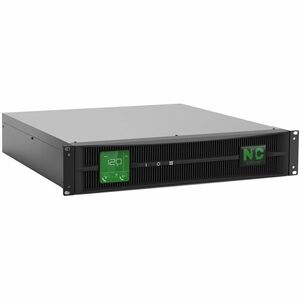Data center operators rely on UPS technology for protecting their expensive Information and Communication Technology (ICT) equipment from power surges.
This battery-backup technology is based on the storage of energy to provide backup power required for sustained operations over an extended time.
Typically, these systems require a short-term support for safe shut-down of the critical components connected to the UPS.
In this instance, VRLA or Valve-Regulated Lead-Acid batteries have been the conventional choice due to their reliability and sustainability. More recently, the supremacy of this system is being challenged and often replaced by the emerging technology of the lithium-ion battery-powered UPS.
Here, we discuss the key factors and relative merits of each battery type:
VRLA Battery Systems:
The initial purchase costs of VRLA batteries can be lower when compared to the new-age lithium-ion technology, but even this is changing as the price of lithium-ion products has fallen as the technology becomes more widespread and available.
The systems are reliable, safe and proven effective based on years of use within UPS systems. However, there are issues including reduced power capacities, increased impedance, and overcharging that come with lead-based systems. Even in the small lithium ion uninterruptible power supply systems, you can find better energy density and power capacities.
VRLA batteries are also highly temperature-dependent. They are used most effectively when kept in temperature-controlled rooms. Any operation above the recommended temperature limits can cause severe damage to the system. In fact, overheating it can reduce the life expectancy of your lead UPS by 50%. Similarly, low temperature can also affect the service life and performance of the battery.
Lithium-Ion Battery Systems:
When compared to the traditional VRLA systems, lithium-ion batteries can sometimes be more expensive to initially purchase. However, they have a longer operational life term of 12-15 years, compared with about 4-5 years for lead-acid systems. They are also about 60% lighter and 70% smaller than their conventional counterparts. The Li-ion batteries designed for UPS systems are also optimized for safety and have a greater range of operating temperatures. This allows them to be placed near the systems they protect, without requiring the investment of a separate environmentally-controlled room.
Whether you need a large or a small lithium ion uninterruptible power supply, you can benefit from the unique chemistry of this technology. It has fewer chemical processes in comparison to VRLA batteries. The electrode structure of Li-ion batteries works as a host for single lithium ions moving freely between the negative and positive electrodes.
With each battery grouping monitored independently, the predictability of performance in this technology helps with improving the efficiency and productivity of the businesses.
What Lies in the Future?
In the future, it can be expected that Lead-Acid batteries will continue to have a foothold for some data center applications. But, they are facing extremely tough competition from lithium-ion batteries that have better total cost of ownership in the long run with lower maintenance requirements and fewer replacement costs. Lithium-Ion systems are also lightweight and have detailed monitoring systems included.
With new innovations and dropping prices, we expect to see growing popularity for the Li-Ion UPS technology, with the development and availability of new systems coming online regularly.



